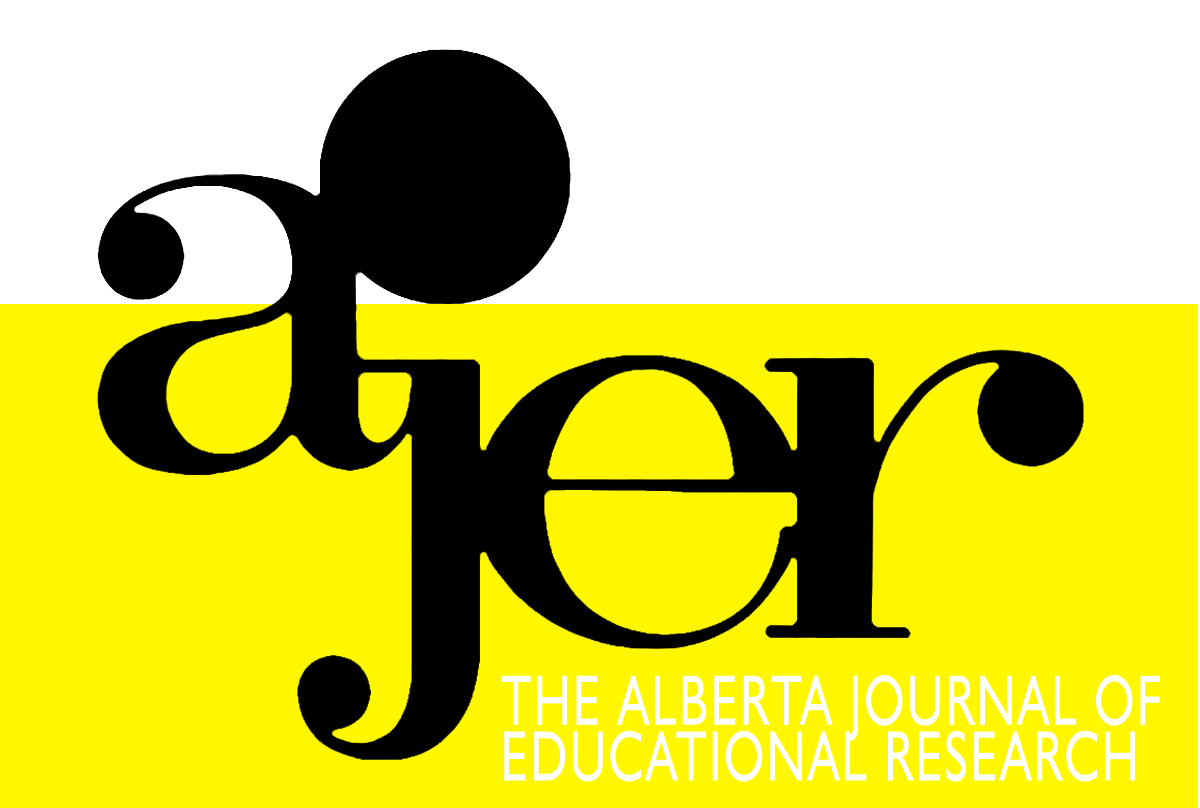Examining the Braiding and Weaving of Indigenous Ways of Knowing, Being, and Doing in Alberta Teacher Education
DOI:
https://doi.org/10.55016/ojs/ajer.v69i3.76174Abstract
Alberta’s Teaching Quality Standard requires that all teachers possess and apply a foundational knowledge of Indigenous Peoples to their teaching. In 2020, representatives from ten Alberta teacher education programs came together to examine how they were braiding and weaving Indigenous ways of knowing, being, and doing into their programs. They also considered the challenges and successes encountered and the ways programs might work together to improve and combat anti-Indigenous racism. Drawing upon a collective case study methodology, representatives responsible for the design and delivery of Indigenous education within each of the programs completed an 18-question survey. Results demonstrate the Teaching Quality Standard (Alberta Education, 2018) served as a catalyst for deepening Indigenous ways of knowing, being and doing in preservice teacher training. The levels of integration are examined through the concept of differentiation (Tomlinson & Imbeau, 2010) and Kanu’s (2011) five levels of integration.
Keywords: Indigenous ways of knowing, being and doing, teacher education programs, Teaching Quality Standard
La norme de qualité pour l'enseignement de l'Alberta exige que tous les enseignants possèdent et appliquent une connaissance fondamentale des peuples autochtones dans leur enseignement. En 2020, des représentants de dix programmes de formation des enseignants de l'Alberta se sont réunis pour examiner la façon dont ils intègrent à leurs programmes les façons autochtones de savoir, d'être et de faire. Ils se sont également penchés sur les défis et les réussites rencontrés et sur les façons dont les programmes pourraient collaborer pour améliorer et combattre le racisme anti-autochtone. En s'appuyant sur une méthodologie d'étude de cas collective, les représentants responsables de la conception et de la prestation de l'éducation portant sur les autochtones dans chacun des programmes ont répondu à un sondage de 18 questions. Les résultats démontrent que la norme de qualité de l'enseignement (Alberta Education, 2018) a servi de catalyseur pour approfondir les façons autochtones de savoir, d'être et de faire dans la formation initiale des enseignants. Les niveaux d'intégration sont examinés à travers le concept de différenciation (Tomlinson et Imbeau, 2010) et les cinq niveaux d'intégration de Kanu (2011).
Mots clés : Façons autochtones de savoir, d'être et de faire; programmes de formation des enseignants; norme de qualité pour l'enseignement
Downloads
Published
Issue
Section
License
UNIVERSITY OF ALBERTA COPYRIGHT LICENSE AND PUBLICATION AGREEMENT
If accepted, authors will be asked to sign a copyright agreement with the following points:
A. Where there is any inconsistency between this Copyright License and Publication Agreement and any other document or agreement in relation to the same subject matter, the terms of this Agreement shall govern.
B. This document sets out the rights you are granting in relation to publication of your article, book review, or research note entitled (the “Article”) through inclusion in the academic journal titled Alberta Journal of Educational Research (the “Journal”) published through the Faculty of Education, representing the Governors of the University of Alberta (the “Journal Editor”).
C. There will be no payment to you for this publication and grant of rights. In consideration of the agreement to publish the Article in the Journal:
1. You are warranting that:
- the content of the Article is your original work, and its content does not contain any material infringing the copyright of others; or, where the Article is not entirely your original work, you have obtained all necessary permissions in writing to grant the rights you are giving in this agreement;
- the content of the Article does not contain any material that is defamatory of, or violates the privacy rights of, or discloses the confidential information of, any other person;
- the Article has not been published elsewhere in whole or in part, and you will not allow publication of the Article elsewhere without the consent of the Journal Editor;
- the names of all co-authors and contributors to the Article are:
2. You agree to license the copyright in the Article to the Journal Editor, on a worldwide, perpetual, royalty free basis; and to the extent required by the terms of this agreement. You shall retain the right at all times to be acknowledged as the/an author of the Article.
3. You further agree that the Journal Editor has the entitlement to deal with the Article as the Journal Editor sees fit, and including in the following manner;
- The right to print, publish, market, communicate and distribute the Article and the Journal, in this and any subsequent editions, in all media (including electronic media), in all languages, and in all territories, ing the full term of copyright, and including any form of the Article separated from the Journal, such as in a database, abstract, offprint, translation or otherwise, and to authorize third parties to do so;
- The right to register copyright of the Journal;
- The right to edit the Article, to conform to editorial policy as the Journal Editor sees fit.
4. If any co-author or contributor to the Article does not sign this agreement, the Journal Editor reserves the right to refuse to publish the Article.



